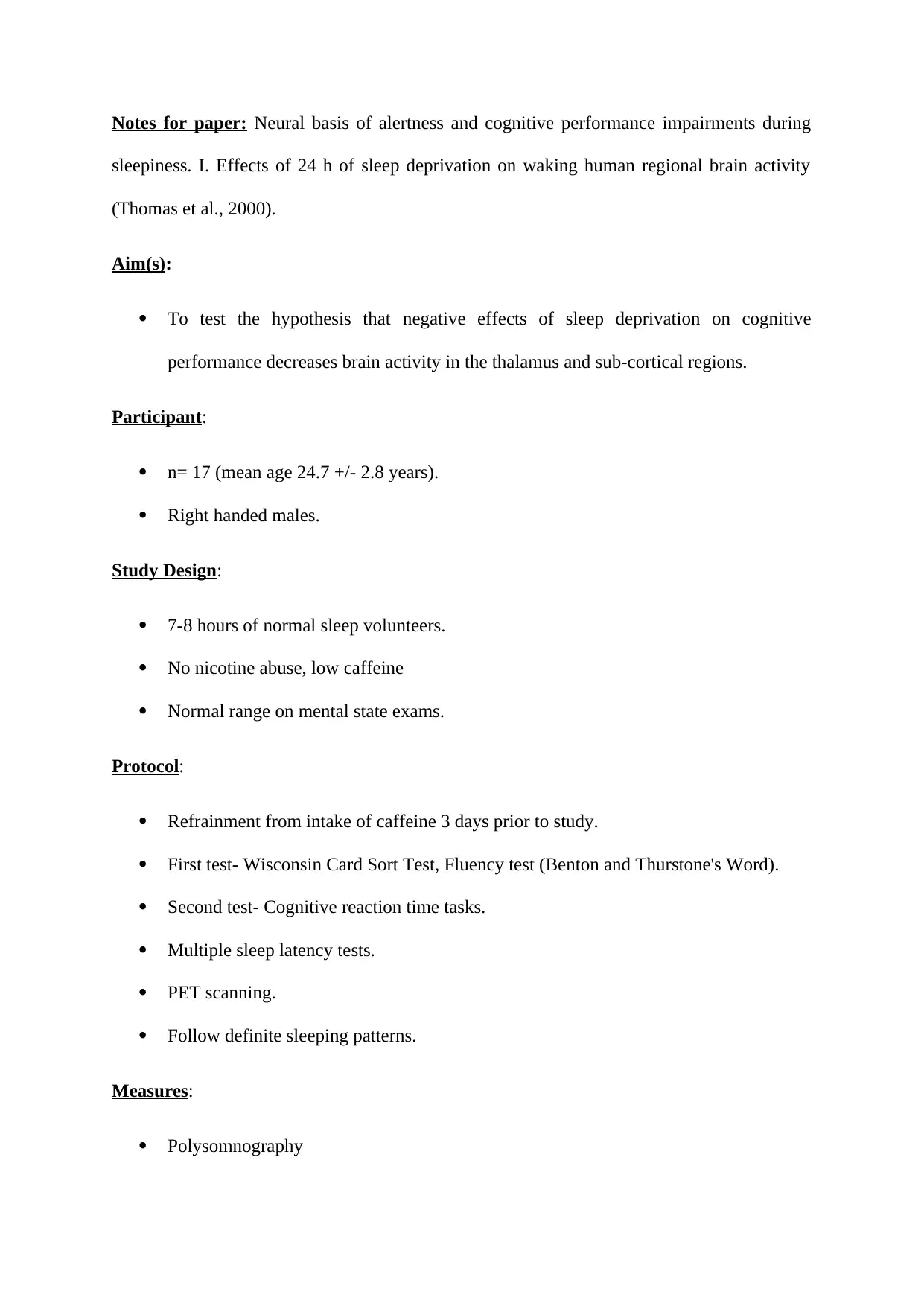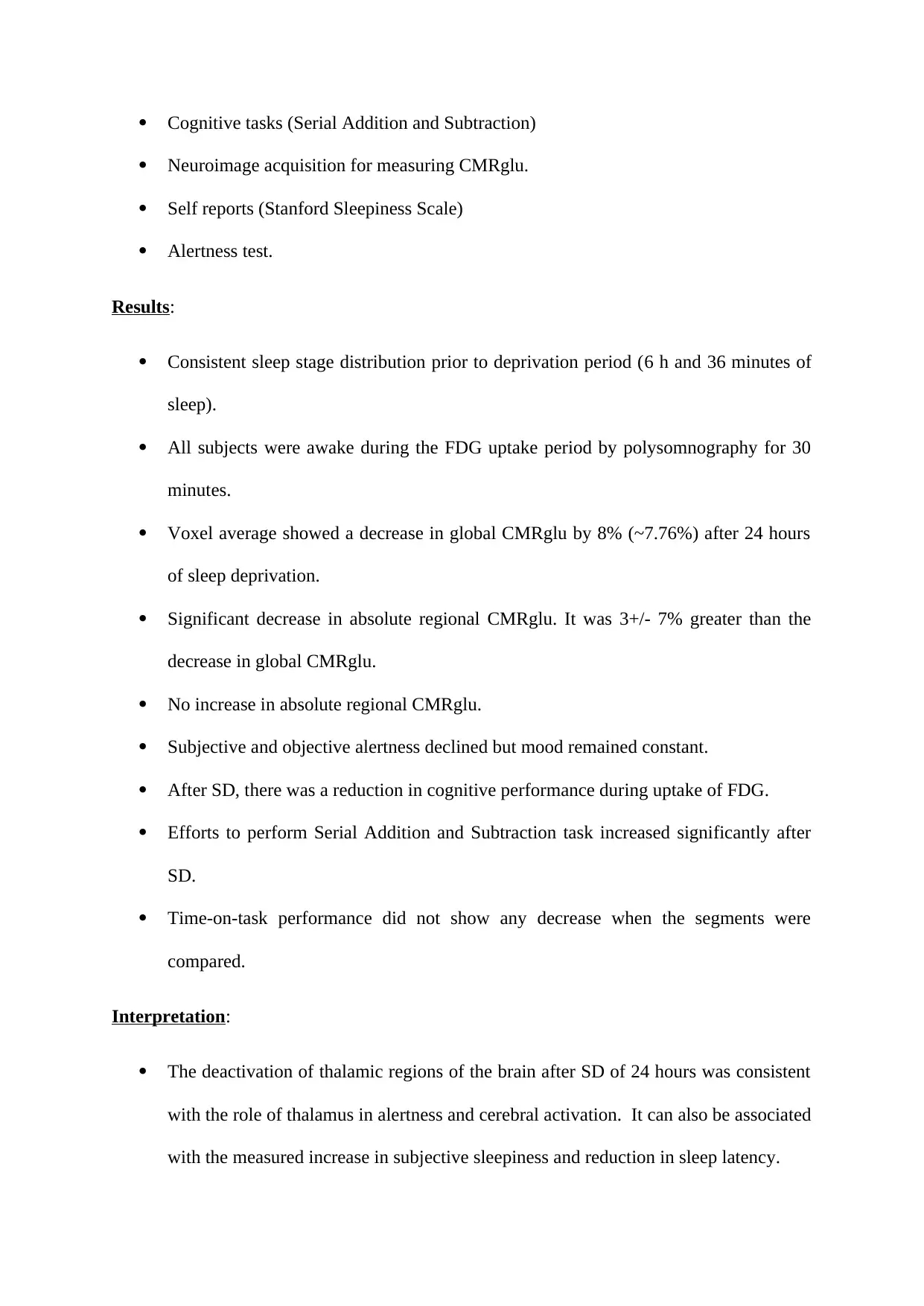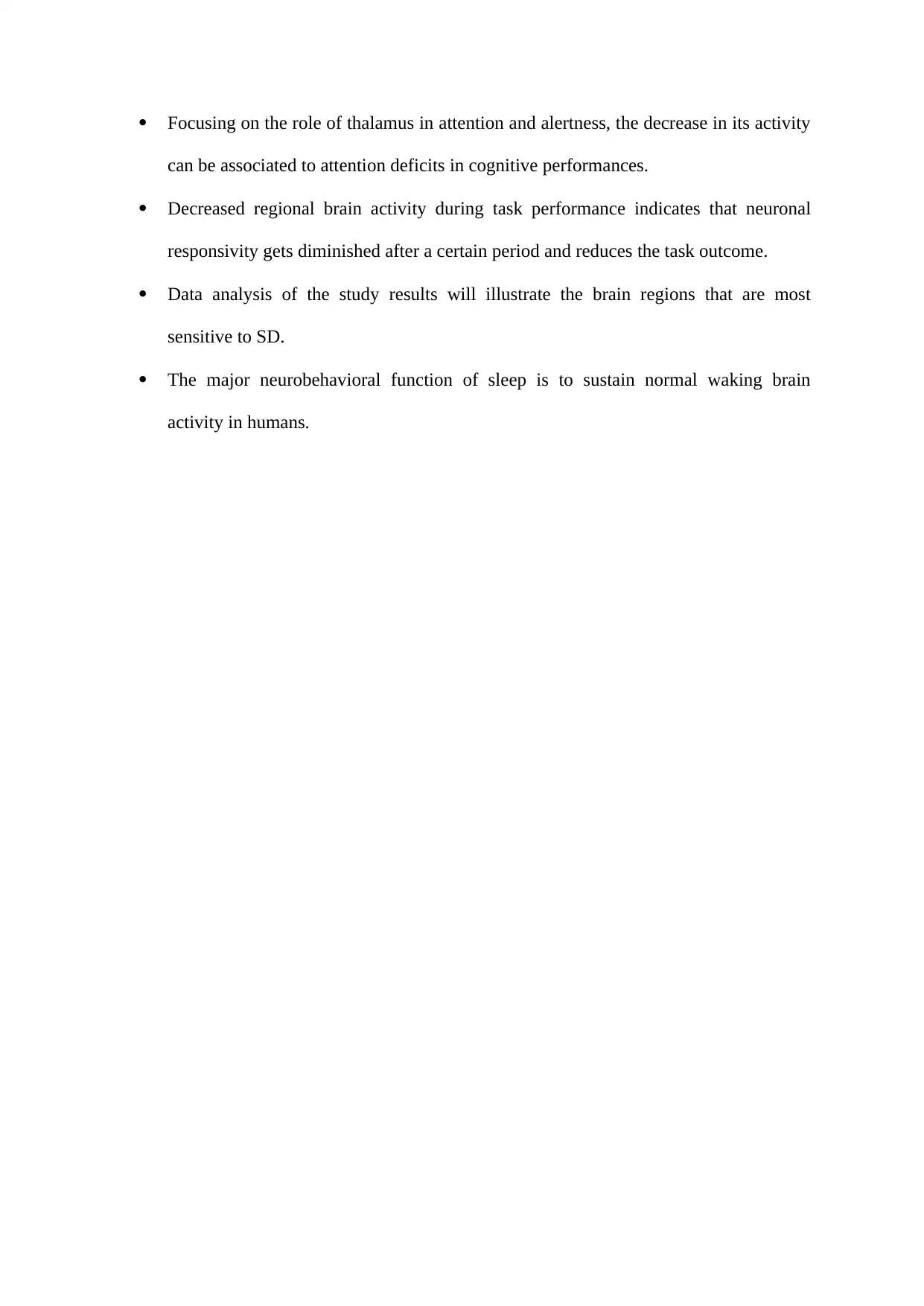Neural Basis of Sleep Deprivation and Cognitive Impairment
VerifiedAdded on 2019/11/20
|3
|447
|340
Report
AI Summary
This report analyzes the effects of sleep deprivation on brain activity and cognitive performance, based on the study by Thomas et al. (2000). The study involved 17 right-handed males who underwent 24 hours of sleep deprivation. The research used polysomnography, cognitive tests, and neuroimaging to measure changes in brain activity, specifically glucose metabolism. The findings revealed a significant decrease in global and regional cerebral metabolic rate of glucose (CMRglu), particularly in the thalamus. The study also showed a decline in subjective and objective alertness, along with reduced cognitive performance. The results suggest that sleep deprivation impairs the function of the thalamus, which is crucial for alertness and cognitive function, leading to attention deficits. The report concludes by highlighting the importance of sleep in maintaining normal waking brain activity and the impact of sleep deprivation on neuronal responsivity and task performance.
1 out of 3








![[object Object]](/_next/static/media/star-bottom.7253800d.svg)